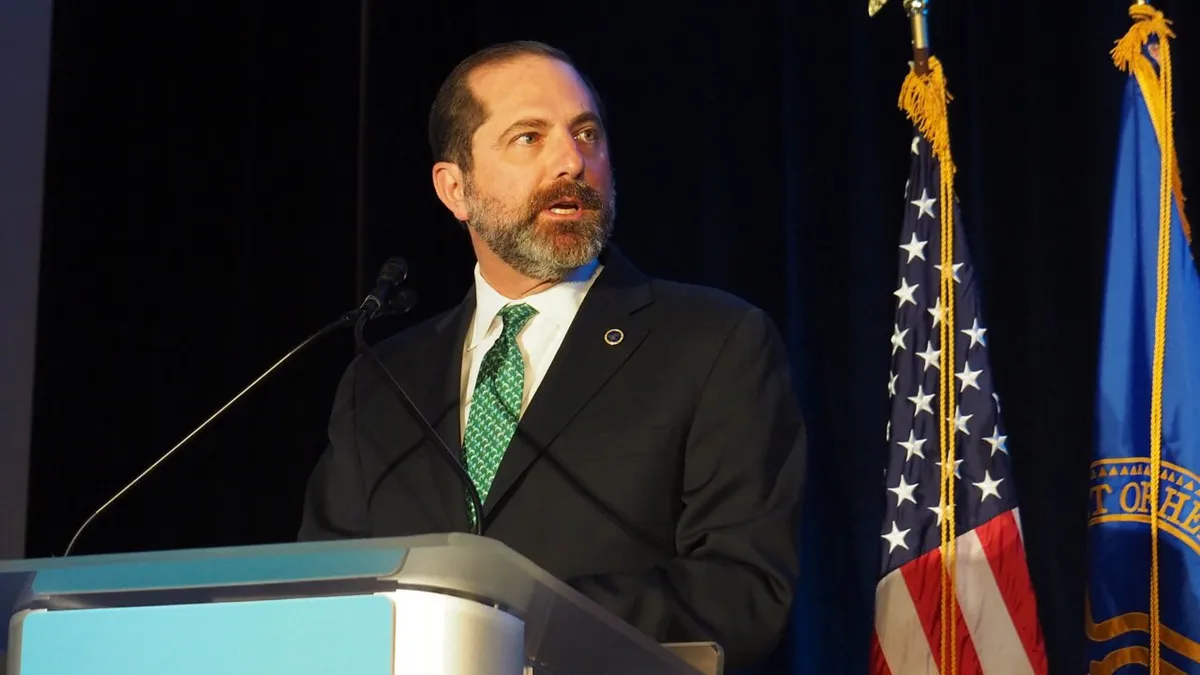Dive Brief:
-
With the novel coronavirus rapidly spreading to communities around the world, including 53 confirmed cases in the U.S., Health and Human Services officials raised alarm Tuesday on a potential shortage of personal protective equipment, which includes respiratory masks and ventilators.
-
Lawmakers also expressed concern over whether the FDA is measuring possible medical device and pharmaceutical shortages from China-based suppliers. The administration acknowledged it cannot require medical device companies to report shortages but is asking Congress to change that.
-
In the immediate term, officials say COVID-19's risk to the American public is low. There is still no available vaccine or antibiotic for treatment.
Dive Insight:
World and U.S. health officials alike are warning of risks to the medical supply chain from the virus, which has spread to dozens of countries. In an update Monday, FDA Commissioner Stephen Hahn noted the agency is unable to carry out inspections in China due to the threat from the virus, but shifting ordering patterns had yet to result in shortages.
On Tuesday, HHS Secretary Alex Azar told the Senate Appropriations Committee that shortages were inevitable without an infusion of funding.
“We need to support the acquisition of personal protective equipment, especially masks, into the strategic national stockpile,” Azar said, in seeking $2.5 billion to slow the spread of COVID-19 to the U.S.
Money allocated would fund the Centers for Disease Control and Prevention and support it for preparedness and response through state and local governments and also help monitor people affected by the respiratory disease. The funding would also support the development of therapeutics, vaccines and help with the purchase of personal protective equipment. The funding request is for 2020 only.
Sen. Patty Murray, D-Wash., asked whether HHS had enough stockpiled masks, ventilators and suits.
"Well of course not, or we wouldn’t be asking for a supplemental to seek more money to procure more of that for this circumstance," Azar said, according to a transcript on Murray's website. "This is a very, this is an unprecedented potential severe health challenge globally, and will require additional measures."
He added that there are currently 30 million N95 respirators stockpiled, but they need at least 300 million for healthcare workers.
“If we get the money, we can actually make that market and get capacity built here,” he told the committee.
Conglomerate 3M has said it is ramping up production of respirators and donated masks, while Amazon has tried to avert shortages in online orders.
On Feb. 6, Sens. Marco Rubio, R-Fla., and Christopher Murphy, D-Conn., wrote Hahn asking whether the FDA had “the necessary tools to ensure the safety and supply of pharmaceuticals, food and medical supplies imported from China.”
On Tuesday, Rubio asked Azar directly whether the FDA had the tools to track drug and medical device shortages. Azar said that pharmaceuticals could be tracked under the FDA Safety and Innovation Act, but that medical device companies didn’t have to make the same “proactive reports.”
CDC's Nancy Messonnier, director of the National Center for Immunization and Respiratory Diseases, said the aim is to slow the introduction of the virus to the U.S. and to buy more time to prepare. She said there is no way to say where the virus may spring up. It’s just a matter of when it’s going to happen.











